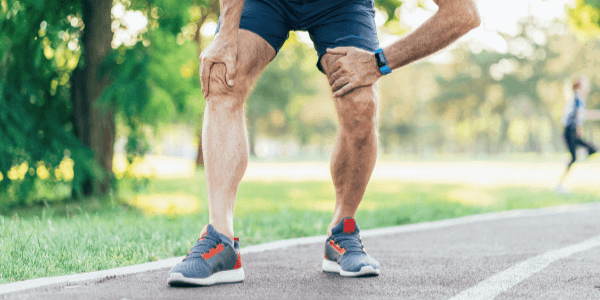Health Hub
Avoiding tennis injuries
Sorry, we couldn't find any posts. Please try a different search.

In this article, we speak to King Edward VII’s Hospital consultant, Professor David Barrett, about getting back into your favourite sport after lockdown and how to avoid potential injuries.
Hospitals are bracing themselves for a surge of injuries as casual players flock to tennis courts after lockdown spurred on by Wimbledon and the Olympics.
The NHS is expecting a huge spike of twists, sprains, snapped ligaments and damaged joints when the ‘weekend warriors’ hit municipal courts to emulate the stars of the Olympic and Wimbledon courts. The combination of pent-up energy from lockdown and the traditional burst of enthusiasm could lead to record-breaking numbers of injuries, cautions a leading orthopaedic surgeon.
“It’s a double whammy this year with the normal increased interest around Wimbledon and the Olympics paired with the frustration of being locked down for a year,” says Professor David Barrett, an eminent knee consultant who specialises in sports injuries.
“People throw themselves into this every year without training or any build up. They simply find their old racquet, put on some old trainers and head to the court. But they could be heading for injuries.
“If they are lucky, it will be a sprain or strain that will keep them out for a few days but many will suffer serious knee damage. They should remember that the NHS is under major pressure and there are five million people on the operation waiting list for mobility issues so they are not likely to get an op very quickly.”

What sort of damage can be done on the court?
Professor Barret, a consultant orthopaedic knee surgeon at King Edward VII’s Hospital, who treats professional sports stars and the public, adds that casual players do not appreciate the stress their joints have to withstand in sport. He is part of the Specialist Knee Unit at King Edward VII’s Hospital which offers a one stop diagnosis and treatment for all knee conditions and complaints. The knee is one of the largest and most complex joints in the body and a sudden increase in sporting activity can stress and damage the ligaments, soft tissue and cartilage that are vital to keep it functioning optimally.
“We put the force of 4.5 times our bodyweight through the knee when we are twisting and turning so that is 45 stones for a person weighing 10 stones, which increases with sporting activity” he adds.
How do you get back into your favourite sport safely?
“My advice to the general public wanting to hit the courts is the same as we give our professional athletes – gradually increase what you do rather than hit the ground running.
“You need to condition your body to tolerate the extra stress. It is not as exciting as charging around but the worst thing you could do is to book a two-hour court with three friends who are fitter than you.”
His guidance is to build up from short, gentle sessions of 30 minutes without going over an hour in the first fortnight of resuming sport.
“People will have that ‘no pain – no gain’ mindset after being locked up for a year and max out their effort when they should be listening to their body and stopping when they feel discomfort.
“You need to condition your muscles and brain to create that muscle and movement memory that will help prevent injuries.”
Professor Barrett, who is also professor of orthopaedic biomedical engineering at Southampton University, adds: “Roger Federer pulled out of the recent French Open even though he wasn’t defeated because he listened to his body and Rafael Nadal took a year off to get his knees right so they are high level examples of listening to your body. They get more out of their performances by not overdoing it.”

TOP TIPS TO AVOID INJURY
1) Always loosen up before – stretch your muscles
2) Start little and often – better than a massive session
3) Don’t max the max – don’t go to extreme activity. Ramp up slowly and stop before it gets painful
4) Steady progression is key – move forward carefully so there is never a need to step back.
More information
- If you’re experiencing symptoms that may be related to a sporting injury, speak to your GP. (If you don’t have a GP, you can make an appointment with one of our private GPs.)
- The King Edward VII’s Hospital’s Specialist Knee Unit at King Edward VII’s Hospital offers one-stop diagnosis and treatment for all knee conditions and complaints with leading experts in the UK backed up by a multidisciplinary team
Article Sections
Latest Hospital News
Should you wish to speak to our press team, please visit Press Enquiries




